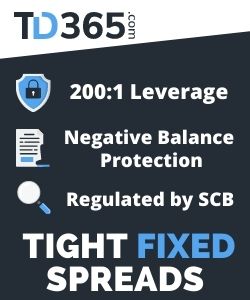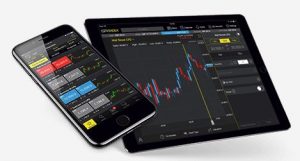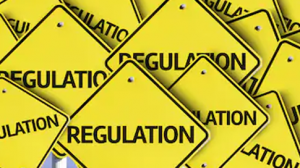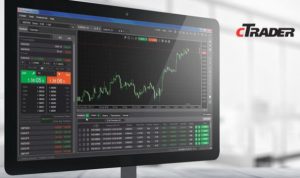 If you are a beginner trader and looking to compare some of the best online trading platforms, then you have come to the right place.
If you are a beginner trader and looking to compare some of the best online trading platforms, then you have come to the right place.
CompareCFDBrokers.com was launched to help you find a great online trading platform. We do this by independently comparing some of the best online trading platforms available and then we let you decide which one best suits your trading needs.
Below, you will learn about the key factors to consider when comparing online trading platforms. These “Top 5 considerations” will help beginner traders separate the good brokers from the bad. Viewers will also learn about the benefits & risks of using an online trading platform, and why trading with a regulated broker is critical.
Risk Warning
Online trading using CFDs is not suitable for all investors. Contracts For Difference are leveraged trading products and carry a high level of risk. You don’t own or have rights in the underlying assets. Please note, the information on this website is for general informational purposes and does not take into account your personal objectives, financial situation or needs. We encourage you to seek independent advice.
How To Compare Online Trading Platforms – 5 Key Considerations
In order to find the best online trading platform, you’ll need to consider which trading features are important to you so you can go and compare these. If you’re a beginner then you might not know which features are important so we have put together the guide below – this identifies 5 of the features that we’d recommend you consider when comparing online trading platforms.
1. Trading Costs
Firstly, every trading platform provider will charge you to make trades on their platform; the key is to find a broker that is upfront with their trading costs and one that has costs that are reasonable to you.
The amount a broker charges you to trade is one of the most important factors when considering what trading platform to trade on. The lower your trading costs, the better chance you have of making a profit.
2. The Trading Platform
 Please open a couple of demo (test) accounts with a range of brokers to trial their trading platform systems – try before you buy if you will. You need to be comfortable with the look and feel of a broker’s trading platform before you start to trade with them – remember, you will be placing your trades on this platform – is it easy-to-use and is the functionality perfect for what you need? If not, try out another broker’s platform!
Please open a couple of demo (test) accounts with a range of brokers to trial their trading platform systems – try before you buy if you will. You need to be comfortable with the look and feel of a broker’s trading platform before you start to trade with them – remember, you will be placing your trades on this platform – is it easy-to-use and is the functionality perfect for what you need? If not, try out another broker’s platform!
We’ve all been there before – found our ideal broker who offers tight, fixed spreads, excellent customer service, great charting package, low commissions, appropriate range of markets etc. – and then absolutely hated their trading software for whatever reason. So test out some demo accounts before committing.
3. Regulation
 Trading with a regulated broker is absolutely critical. DO NOT trade with a broker that does not hold a tier-one licence (ASIC, FCA, MAS etc.), it is as simple as that! A quick check on a broker’s website will show which licences they hold.
Trading with a regulated broker is absolutely critical. DO NOT trade with a broker that does not hold a tier-one licence (ASIC, FCA, MAS etc.), it is as simple as that! A quick check on a broker’s website will show which licences they hold.
Dealing with a fully-regulated entity has many advantages, the biggest being that an online trading broker will be closely monitored by the regions’ governing regulator (i.e. FCA in the UK) and will need to operate in accordance with local laws.
4. Range of Markets
Please ensure that your trading platform of choice offers the markets that you are hoping to trade. Most brokers will offer the world’s most popular markets but you might be looking for something more specific, penny stocks for example. Also, different brokers have different strengths – some may offer a lot of US stocks while others will focus on cryptos etc. Do your research to ensure they have the markets you are after.
5. Customer Support
The quality of service you receive from your trading platform provider is important too. If you receive poor service at a restaurant do you go back? Probably not. The same applies here. Only trade with a broker that gives you the very best customer support. After all, you are a beginner who needs help getting started and there should be someone available on phone/ email/ live chat to help you who is patient, friendly and knowledgeable.
The Benefits of Using An Online Trading Platform
There are many benefits to trading the financial markets using an online trading platform. However, as a beginner, you should proceed with extra care, if you proceed at all. It is estimated that at least 70% – 80% of online traders lose money!
 Trade the world’s most popular markets
Trade the world’s most popular markets
Online trading is pretty cool – you can access 1000’s of financial markets, 24/5! Twenty years ago that was simply not possible. However, the power of the internet and evolving technology has allowed every day investors the ability to access global markets.
 Place trades on rising and falling markets
Place trades on rising and falling markets
Gone are the days when you could only buy stocks in the hope they increased in value. Online trading now allows for traders to “go short” (sell the market), if they anticipate that an asset will decline in value. Being able to speculate on both rising and falling markets is a major reason why people trade online.
 CFD trading is a leveraged product
CFD trading is a leveraged product
Leverage means you only need to deposit a relatively small amount of money onto your trading account in order to access significantly larger trade sizes. Click here for more on leverage.
 You can make a profit (if you get it right)
You can make a profit (if you get it right)
As we mentioned above, some 70-80% of traders will lose money in their trading career. Not great numbers are they!? But that does mean there are 20-30% who do win money and are successful. Put together a decent trading plan and you will have a chance at succeeding.
How To Find The Perfect Online Trading Platform
As mentioned, the number of online trading platforms available to retail traders are seemingly endless and it can be difficult to decipher between all the options. To help aide the decision making process, you should ask yourself the following questions;

Pepperstone’s cTrader trading platform
What kind of trader are you?
Are you a beginner or an experienced trader? Do you actively trade the markets or are you more casual? Your answers will dictate what you look for in a trading platform – from the look & feel, to the ease of use, to the range of markets available, educational tools etc. For instance, TD365.com offers a trading platform suited to beginners, whereas Pepperstone’s cTrader platform is better suited to experienced traders.
Which financial markets will you be trading?
There are thousands of financial instruments to choose from. So you need to decide which markets you wish to trade before opening an account. Some brokers will specialise in certain products, i.e. Pepperstone for FX, TD365 for Indices, and City Index for stocks.
How much will it cost to trade?
Definitely consider the trading costs involved with the trades you’re going to make. Each broker has different revenue models and their trading costs will differ. We’d recommend emailing the broker with a list of your anticipated trades and asking them what each will cost. Then you can compare each broker and decide on one that suits your needs.
What Are The Risks of Online Trading?
Online trading can be a brutal experience if you get it wrong. You can lose a lot of money very quickly and not even know why. We would urge everyone to do their research and open a demo account before risking their hard-earned money. There is no shame in backing out and deciding its not for you. Here are some of the risks;
 Market volatility
Market volatility
From time-to-time the markets can spike or crash very quickly (think 9/11, the Swiss Franc de-pegging etc.). One second you could be in a healthy profit. The next, some major news is announced and you could be in serious debt – as simple as that.
 Leverage
Leverage
Trading on leverage is a double edged sword in that it has its advantages and also its disadvantages. The disadvantage is that leverage can magnify your losses very quickly. If you have an open trade position and some volatility hits the market, you could be in serious trouble.
 Owe more than you deposited
Owe more than you deposited
This is an unfortunate but very real possibility. You might deposit $2k onto your trading account but end up owing the broker more than that amount.
Why Beginner’s Should Pick a Regulated Online Trading Platform
Below is what a regulatory agency would expect from any broker it authorises to act under its regulatory framework.
Transparency
All brokers that are regulated must be completely transparent about all dealings that they are involved in. They must also be transparent and upfront in all client dealings as well.
Regulated brokers are also required to submit regular audited reports. This enables a regulatory agency, like ASIC, to know that a broker is acting in accordance with its strict framework. If any mistakes or serious wrongdoings occur, the regulator will step in and strip the broker of its licence and fine/ ban, where appropriate.
This should provide traders with peace of mind, knowing that their regulated broker is acting in good faith. It also helps reduce the risk involved with online trading and almost entirely removes the possibility of any fraud taking place.
Operating Capital
Most regulators will require that a broker maintains a high amount of minimum capital, set aside in a bank account. In Australia under ASIC regulation, authorised brokers must keep $1.1 million in a separate bank account at all times. They must prove they have these funds on a monthly basis.
The main benefit of this requirement is that brokers are then capable of coping with high volatility, without going bankrupt. On the flipside, this ensures that client money that has been deposited with the broker, is safe.
Local Representation
Most regulators will require that a broker has a local presence in the country that they are regulated in. For instance, the FCA requires that all FCA-regulated brokers have an office in the UK. Same with Australian brokers and most other regulators do the same.
While this may not appear necessary, particularly for online trading, which hardly needs a shopfront, there is a clear advantage. It ensures that the brokerage is a legitimate company and increases accountability for its services, including its online trading platform.